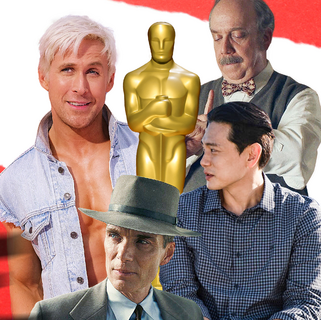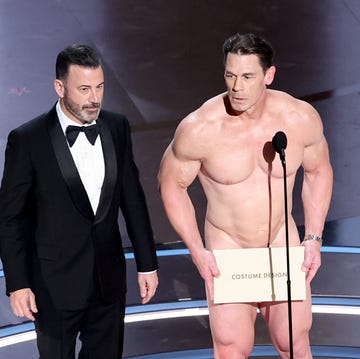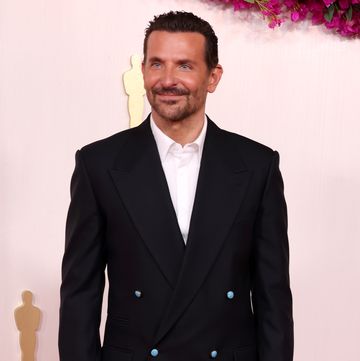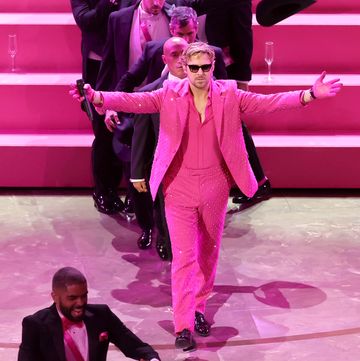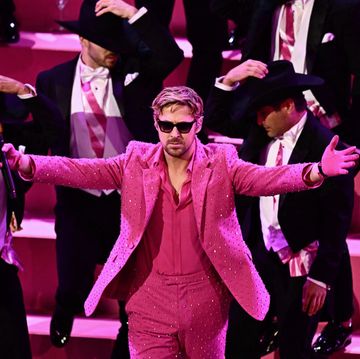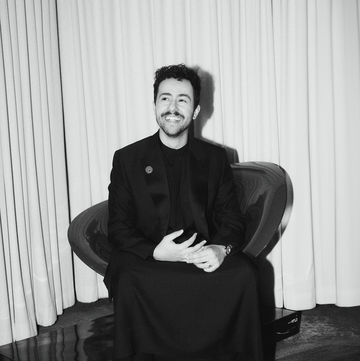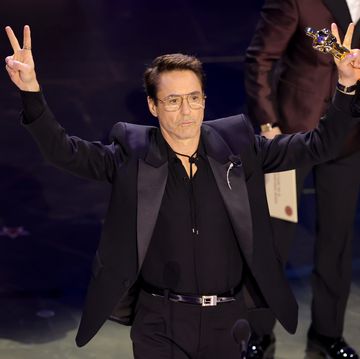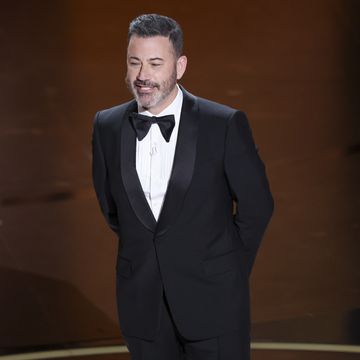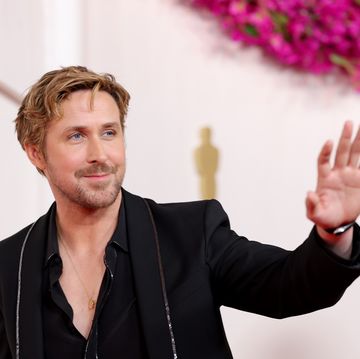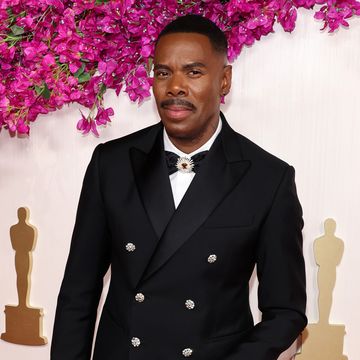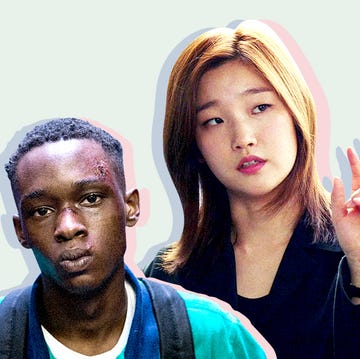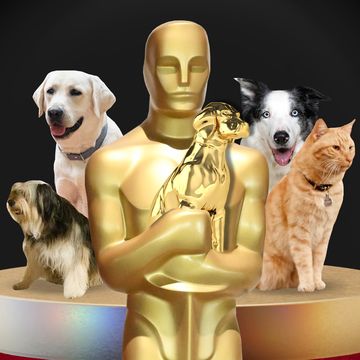1. Monday. I am asked to interview Michael Keaton. They tell me he lives in Montana.
2. I tell my brother, who texts back: 220, 221, whtvr it takes.
3. A call from my editor: "They said maybe you should go pheasant hunting. He's making a movie called Birdman. Stay tuned. It might be soon."
4. Tuesday. Editor receives the following e-mail from Keaton's publicist, forwards it to me:
Hi can you call me.
Let's get Tom to Montana to meet with MK by Friday latest.
Michael says to put him at the [redacted] Hotel because it's a better place for them to do things, and MK will have to go into town at some point during Tom's visit to do things he has to do. They are also going to have dinner there too.
Do not stay in [redacted], MK now says. Ideally if Tom could leave tomorrow and see MK on Thursday that would be great but we know that's not optimal on the travel itinerary. But if Tom can land in Montana on Thursday he can see MK on Friday and maybe they will also do something on Saturday.
Also MK wants Tom to see very specific films:
- Multiplicity
- Much Ado About Nothing
- The Company
He also wants Tom to talk to some key people about him:
- Tim Burton
- Bill Hader his co-star in Clear History
- Larry David his co-star in Clear History
- Director of Birdman Alejandro Gonzalez Inarritu—he is very important to MK.... "Birdman" is a big focus
- Any one of the Cast of Birdman Emma Stone Edward Norton Zach Galifianakis
- Director of RoboCop Jose Padilha
- Any one of the Cast of RoboCop Joel Kinnaman Gary Oldman Samuel L. Jackson
5. Google "Montana Hunting License."
6. Thursday. Comes another e-mail from Keaton's publicist:
Tom
As you might have already heard from Michael Keaton, he has a list of preferred individuals whom he would like very much if you would contact regarding the profile. The list is below—if you have any trouble with reps, please advise them that Michael personally asked for them. If they call me I will support the effort.
In addition he has asked if you could read his ESPN.com blogs about the Pittsburgh Pirates. And also he wants you to read his profile on Grantland. He also wants you to listen to the Marc Maron podcast and to read the piece he wrote in "Astream." I've included the note about that book here.
Again, I'm sure he's told you about all of this, but I thought it might be helpful to have it written in one place.
LIST OF PEOPLE TO TALK TO
- Director of Birdman Alejandro Inarritu (note about production attached)
- Cast of Birdman (particularly Ed Norton, Zach Galifianakis, Emma Stone)
- Director of RoboCop Jose Padilha
- Cast of RoboCop (particularly Joel Kinnaman, Gary Oldman)
- Cast of Clear History (particularly Bill Hader)
- Tim Burton
- Ron Howard
- Sarah Silverman
- Jack Nicholson
- Griffin Dunne
- Nicole Kidman
- Adam McKay
- Will Ferrell
- Harry Colomby (his manager for YEARS)
- Robert Duvall (he's been to the Montana Ranch)
- Tom McGuane (Montana Friend)
- Carl Hiaasen (Montana Friend)
- Tom Brokaw (Montana Friend but he's nursing a bad back so might not be available)
- He might have told you about some Pittsburgh people to contact (possibly his sister?)
7. Editor calls: "Strike that thing about the movie. Birdman is not about bird hunting. It's about an ex-superhero who is trying to put on a play of a Raymond Carver story."
"So, no hunting?"
"No, he really likes to hunt."
8. Watch Batman and most of Batman Returns. Pull Raymond Carver book from shelf. Read Carver story. Watch thirty-six minutes of Beetlejuice on DVD. Buzz through Night Shift, Mr. Mom,Grantland.com Q&A. Read first four entries of MK's Pittsburgh Pirates blog, watch Pacific Heights twice, request contact info for everyone on Keaton's list from editorial assistant. Wait for Keaton. Watch Multiplicity.
9. Keaton confirms plan to meet in Montana in a day and a half.
10. Watch seven minutes of Much Ado About Nothing on the plane.
11. Arrive at hotel close to 2:00 A.M. Old. Notable feature: a swing-arm elevator, which must be operated by a hotel employee.
12. 7:15 A.M., Keaton calls me on my cell phone.
"Too early?" he asks.
Before I can answer: "I'm coming into town and I don't know what your plans are, but if you want to meet for lunch we can—we can do that. I mean, I'll be in town. I'm coming in now, but that's for something else, some things I want to get. For you, and for the story." Michael Keaton speaks like a lot of water going over a cliff. He is a tissue of monologues. I tell him I'm ready. "Oh," he says. "Okay. Well, the plan was hunting, but I have some things I need to do. I don't know about hunting. Let's just see how the time, how things play out." We agree to meet at the coffee shop next door to the hotel.
"Can you get there?"
I remind him that it's next door.
"Okay, call me back. If you can [inaudible]." On the forty-minute drive from his ranch, he calls three more times, leaves voice mails, all of them inaudible.
13. On time. Keaton is already there, slim, limber, just the least little bit jumpy, sitting at a café table, drinking coffee, in a hunting jacket, blue jeans, some kind of plaid shirt, and a ball cap, walking boots, talking to a local. A painter or photographer. Fail to note which. Order coffee, sit. Keaton explains the day, building in an escape plan with uncertainty. Just in case.
"I have to make some calls. I gotta do some legwork. I'll have to get the dogs, but maybe we can go out and, sort of, well, maybe we can get out there real quick." I reassure him, promise to hang back. He pinches an eye, does his little head tilt, which in his universe of tics means: thinking about it, giving it a shot. He likes a proposition.
"Okay. We'll hunt then. After we talk. After I make these calls."
14. Tim Burton, Keaton's director in Beetlejuice, Batman, and Batman Returns, who speaks proudly, even wistfully about Keaton.
"Michael is always on, he has an intensity of discipline. He doesn't follow any traditional path. He refuses.
"My original thought for Beetlejuice was Sammy Davis Jr. But then I met with Michael and he immediately started making the character. Blew me away. He's a master improviser. And then when it came to Batman, I'd been meeting with these beefy action-hero types, then Michael arrives, working at the opposite pole from Beetlejuice. He comes in with this whole psychology, approaching it with an almost manic-depressive quality in mind. I thought: Now I get it. There's a reason that guy dresses up like a bat. Those crazy blue eyes, peering out of that rubber cocoon. It's a terrible thing to do to a good actor. Michael handled it with his eyes.
"You lose track of time. You get old. That time with Michael, working on Beetlejuice and Batman, that was the most profoundly creative time in my career, every day was exciting. I miss it."
15. Keaton, after recommending the croissants, with his back to the door, leans forward on his elbows—using them to hold down the wobble of the table. He speaks on the value of the real.
"Westerns were always my favorite things when I was little. And it always bothered me when cowboys were too clean in movies, or when they wore their guns like they had an outfit on. It always worked better when a guy looked sweaty and smelly, I hadda believe, I hadda believe that."
The phone rings.
"Hello? Hello? Hello. Hi, honey! When am I gonna get to see you? You are? Well, I'm gonna be over there later, and—are you going to school? Oh, you're not? I thought you guys were going to school. Why aren't you going? [Laughs.] Are you making the call? Are you telling the teacher you're just going to take a day off? Okay. Okay. Just, okay. Maybe we can have dinner later. Okay—here's a kiss—muah."
He hangs up.
"Unbelievable. Daughter of my very good friend. This little girl, she just decided—amazing.
"Now. Wait. Okay. It has to be true. Really true. Real. I had a nose for it as a kid. I still try to. Over the years, I think, people—actors, writers, whatever—lose their frame of reference. Their frame of reference is based on somebody else who did this or did that. Performances. So it just becomes a reflection of what already works. Like a warm-up. And that's an invitation to be inauthentic. Everything becomes, you know, the work of somebody who did that before. Then somebody becomes a version of a version of a version. My frame of reference—and maybe I'm just lucky I grew up the way I did, when I did—it's taken from some guy on the street, or some guy I grew up with. I always wanted to be the version. You know, the thing."
16. Sunlight angles off truck windows. The shop door opens, two women and a man enter, order. They stare at the back of Keaton's neck but say nothing. A surprising number of famous people live in Montana, so it's not odd to see a movie star in a coffee shop. Keaton turns, does a vintage double take, and stands to greet them—he knows everyone in the shop. Then he sits to continue.
"When I was a kid, I used to have this book of famous escape stories. You know, like POWs and that stuff. And I remember I would close the book and set it just so on my chest, close my eyes, and think. What was that really like? How did that really feel? Not just the version I'd read, not just what would be exciting about it. I was picturing what was real. I don't know—freezing, broken fingers, lying on your … I don't know. This is how I thought when I was a kid. And I used that. I grew up in rural Pennsylvania, in a really rundown old house. I'd stay out till 8:30, 9:00 at night. Just blow in. My mom and dad never really cared much. It was okay. We were pretty free to roam. I mean, I had no concept of stopping play. It just didn't occur to anyone.
"And there weren't that many kids around. We'd play war, soldiers, fight in the woods, cowboys and Indians. So when we did these fights, they had to be true for me. I'd say, 'We have to have a little contact. We have to hit each other—I won't hurt you, you won't hurt me, but we gotta make contact, you know?' So I'd hit him. In the face. Bam. I swear.
"But anyway, when he wanted to go, I'd say, 'No, no, no'—and here's how weird I was—I'd say, 'We have to do the previews of what we're doing tomorrow.' The trailer. My hand to God."
17. Samuel L. Jackson, Keaton's costar in three movies, including the upcoming remake of RoboCop, calls me and speaks excitedly about the versions of Keaton. He sounds exactly like Samuel L. Jackson:
"The man is always something new. Batman and Beetlejuice are very different from one another. That's a passage from darkness to light. Beetlejuice is dark, man. That's some dark shit. And it's funny. But Michael brought gravitas to it, and then to Batman, which was a lot different from what I had in mind. And so on. There's hilarity and menace in the guy.
"He's just a very cool dude. When we were shooting RoboCop, there were times we were basically the only two people in that room for two days. And that was a good two days. Michael Keaton can talk about anything, with anybody."
18. Coffee shop still. Keaton reacts to a sentiment: Beetlejuice wasn't real. Batman wasn't real.
"Well, I mean true. And I'm always on the lookout for truth. Anything works if it's true. You know, the Three Stooges—you talk about commitment. They'd show up at a mansion and there'd be this old proper woman character, who would never react to them. I mean, they're smacking each other with planks of wood, gouging each other's eyes right in front of this proper woman, and she would just ignore them. She would just go, 'Now, you boys take good care of our house while we're gone!' Like it never happened, like what she was seeing wasn't there. You know, that's why it's funny. One hundred percent original. Two worlds, each very real, very true, smashed up against each other.
"And recently I started thinking about how old they were when they were doing this. When Moe turned fifty and started getting these bags under his eyes and shit. That fucker would get up in the morning, leave his house, and be like, This is what I do for a living. Heh."
19. Alejandro Gonzáles Iñárritu, director of Birdman, speaks about casting Keaton as the protagonist, an ex-superhero.
"The original cape was a very challenging thing. It's true. But that's not why I cast him. He can do both types of acting demanded in the story. He can handle the up-close work that movies require, the demands of the face, of proximity, the wit of small things. And at the same time, he knows the physicality demanded by the stage, since that audience is at some distance. He can also handle comedy and empathy, and with a profound depth to both."
20. Keaton stands to visit with another friend, hands slipped flat in his back pockets, bill of his hat tipped slightly up. The friend teases, raps the back of her hand against his shoulder. And he does this thing where he looks bashful and delighted, where he rocks on his feet, then gives her some back. The guy is unfailing in his eye contact.
21. My brother, an architect, texts me: Tommy. Every contractr I KNOW remembers the line 220, 221 whatever it takes. Like a code used for who knows something, and who doesn't. I'm just sayin.
22. Keaton remembers the line from Mr. Mom. "220, 221, whatever it takes." For some reason one of the most satisfying movie quotes of all time.
"I'll tell you about that line. I read that John Hughes script for Mr. Mom and I thought, Thisguy is a funny writer. I went: You ought to stick around and direct this thing. But he didn't, he left, and look what he became. A really legendary comedy director.
"Like any script, it had to be rewritten. And I was in the thick of comedy then. Back then, I was real into—and, and a lot of stuff was really funny—but I was really afraid that thing would become clichéd. Or too cute. Or not true. I looked at myself and said: Really? This guy, having those kids, at that age? I'm looking at a scene or a moment and thinking, That's for another kind of actor. We gotta figure that out, because nobody's gonna believe that. So I have to find a way to be this guy. I mean, I am this young guy, but I have to find a way to make that work. I am. Look at me. I don't look like that. We gotta adapt this thing to what I am. To the truth.
"So, we're getting ready to do the scene where Martin Mull comes over in the morning to pick up Teri Garr, who's gone back to work, to take her on a business trip. My guy's been fired, he's staying at home, he's really emasculated. I mean, I'm worried about how to make money for my family. We're doing the scene and it was okay. And I remember saying to the prop guy, 'Go find me a chain saw.' When he comes back with it, he says, 'You wanna wear these?' And he holds up some goggles. I go, 'Yeah.' You know, they make me look crazy. And when Martin shows up, I know I should look under control, I'm not sweating it. I'm a dude. So we're standing there, Martin pulls me aside and says, 'You know what you ought to say? When I ask about the wiring, you oughta just deadpan: '220, 221.' I died. It was perfect. I may have added 'whatever it takes.' But it was his."
23. Hunt. Grass rises in clumps, more like fists than weeds. In between, the bleached and broken bones of antelope litter the dirt spots, which makes no never mind to Michael Keaton. He points to mountain ranges, three of them in view, names them, names an unseen river.
"Please don't name them. I don't want anyone to triangulate."
24. One dog, then the other. A pointer, who creeps and sprints, listens for Keaton's voice, knows the routine even when he's a bit unsure. And a retriever, thick and heavy, who galumphs when he flushes birds as if it were incidental, as if doing nothing at all but living out a sunny day. Keaton walks one slow diagonal, then cuts back against it. Different angle. Several times. The thought occurs: He must be using a pattern. Forget to ask.
He speaks to each dog: hopeful but not expectant. Demanding but more interested in encouragement than wins.
Walk some more.
Fence lines, grass lines, tree lines. Where the birds are.
The dogs: wildly different from one another. We hunt for an hour with one, drive a little bit, then hunt with the other. Each walk is like a separate day in Montana.
"I like the mismatched quality of them. I like them a little askew like they are. With different strengths of character. I don't want dogs that have had the personality trained out of them. It's a partnership. I want to connect. I'll hunt with some guys, with their dogs, and think, This is like working with a robot. They're kind of too perfect. These two? Utterly imperfect. You gotta like a little imperfection of character."
25. Books Michael Keaton mentions as required reading:
- The Son, by Philipp Meyer
- Empire of the Summer Moon, by S. C. Gwynne
Books about the Comanche nation. Relevant to nothing, just interesting to him, something for us to talk about.
About the first book: "I want to get that for you. In fact, I went by the bookstore, but they were already out."
About the second: "Man, I gotta get that for you. I had a copy that I was going to give you. Oh, man. I'm gonna send it to you. I will. You gotta read that. I'm going to get that for you."
About the Comanches: "Comanches were badasses. Hard. And they could ride. Oh, man. They understood horses like no one else. I don't know, they just got them. A Comanche could lean over the front of a horse and fire an arrow from underneath its neck on a dead run. And they'd hit their target, Jack. On a dead run. I gotta introduce you to someone. This guy, he lives in town. He's just the elemental hunter. Great guy. He makes his own arrows, works on them all winter. For months, anyway. That guy can shoot. He's a true hunter."
26. I call Larry David, who cast Keaton in the recent HBO movie Clear History, as a demented stump puller. I describe Keaton's list to him. The contacts, the readings, the list of movies. Ask: controlling or helpful?
"He did that? Is he crazy? Well, it's got to be helpful. I mean, wasn't it helpful?
"I met him standing on line at Catch a Rising Star in 1974. Isn't that something? Then I saw him here and there doing stand-up for a couple of years, and then he just wasn't around. And I figured he'd quit. He was just gone from that little world. But he was studying the acting, working that end. But he was there, then he wasn't. Then all of the sudden he was again. That's because he's so good, he doesn't have to constantly prove himself.
"And when I needed a guy who could play Captain Ahab crossed with Quint from Jaws—a guy with a parakeet on his shoulder—you know, Michael Keaton came to mind."
27. Four small hens burst into the air—you can't shoot these. Then a male pheasant is flushed by the retriever. To the left, then ahead, and above.
Keaton shouts "Bird!" to the dog, then sights, pauses, and shoots. At fifty, sixty yards. The bird falls, straight down, like a stone from a tree branch, dead when we reach it. Great shot. Truly. Keaton accepts congratulations, tucks the bird into the back of his vest, and walks on.
"Now you'll have something to eat tonight. I'll get this cooked up for you."
28. Keaton stops for lunch on return. A sandwich shop. Barley soup. He ignores the bread.
29. Ron Howard, the first person to cast Michael Keaton in a movie, director of Night Shift, Keaton's first feature, and later The Paper, writes an e-mail from a boat in the Pacific.
"One of my few professional frustrations has been my not having had a role to offer Michael in recent years. But I would only ever cast him in a role he could dazzle in, whether comedy or drama. He'd be wasted otherwise and that would just aggravate me every day, knowing what Michael is capable of.
"Michael had starred in a series episode directed by Lowell Ganz, who cowrote Night Shift. When proven movie stars were turning us down, Lowell one day said, 'If the studio would ever just cast someone perfect for the part it should be Michael Keaton. He'd kill Blazejowski. He's a comedy monster that only the network knows about so far.' Smart call.
"Years later, I directed Keaton in the fight between he and Glenn Close in The Paper. After the first take, he came over and I told him how great and funny it was to me and he arched that brow of his and said 'great, but lemme just tell you, she is fuckin' strong, Jack.' And then glowed."
30. José Padilha, director of the recent remake of RoboCop, in which Keaton plays the CEO of a company that makes robot policemen. From Brazil, on a cell phone:
"I needed an actor who could reach very broad audiences but at the same time strike a tone that went beyond the predominant stereotype of Hollywood villains. He plays a guy who's misguided but really believes in the technology he's producing. You want to believe him, because he believes in himself. Like Michael."
31. Comedian Bill Hader, Keaton's costar in Clear History, flatly declares: "In Night Shift he makes one of the best entrances in the history of film—his first entrance. Nails it. You hear him tumbling along, singing in the hall, then his shadow at the door, and he pauses. First entrance. Fantastic. For someone my age, he's a constant, someone who's just always been there, like Tom Hanks, Steve Martin, Kevin Costner."
32. Morning. Keaton, in his kitchen, on his ranch. Making a protein shake. Ignoring a box of croissants.
"After Night Shift and Gung Ho and that, I started to see how it could go. I mean, it could go that direction, and I could never get off that road. The glib-young-man thing."
It is a thing, too. In nearly every comprehensive interview with Keaton, he has used that phrase: "the glib young man." He played the glib young man five, maybe six times in the eighties, then never again. It's why people sometimes say, "What ever happened to the guy?" It's why people still ape lines ("Farging icehole!") from Johnny Dangerously, the underrated 1984 gangster send-up. It's the engine of Beetlejuice. And the glib-young-man thing is why the world freaked when Keaton was cast as Batman, and why it was dazzled when he played a roach-toting tenant in Pacific Heights, long before he settled in and simply made the movies he wanted to. It's why there are people reading this article who weren't sure who Michael Keaton is when they started it. But it might as well be said: Keaton killed the glib young man a long time ago.
"I could see I wouldn't get to do this or that. And they had wanted me to do Splash, and I turned it down because it was basically the same formula—two guys, one guy's the wild guy, one guy's the other guy. The only thing I miss is that I didn't get to work with John Candy, who I loved. Planes, Trains and Automobiles—so fucking good. Man."
33. "This is gonna sound weird, but when I was a kid I was influenced by two movies, two roles really. You're not gonna believe me. One was in Ryan's Daughter."
Michael Keaton says, "Ryan's Daughter."
Now, this is in Keaton's kitchen, deep at one end of his ranch, in the grip of a little valley, surrounded by fifteen hundred acres of land owned by him. Cattle, barns. Horses, the whole bit. The house is, in fact, a ranch house. Simple kitchen, big television. Vacuumed, neatly appointed, everything just so. But modest. Michael Keaton has just said that Ryan's Daughter, a relatively obscure Robert Mitchum movie, inspired him to act.
34. Outside, the dogs bark. Otherwise, nothing. Zip.
35. Keaton continues. "Ryan's Daughter, yeah. I don't know. It was probably an okay movie. Pretty enough. But there was a guy in there, a father, who played a sort of—I don't know—challenged guy. But it was a character, a real character, you know? He wasn't the handsome guy in town, he wasn't the pretty guy in town, he wasn't the lead. And right there in the theater I went, Oh, man, that would be fun to play. And when I was little, I was a big Jimmy Cagney fan. He did the Lon Chaney story, Man of a Thousand Faces. He was a guy who played Quasimodo, the Phantom, all these guys. Cagney as Chaney, as you name it. Layers, man. That was the other time I went, 'Oh, my God. What a job that would be!' "?
36. Keaton. On the versions and versions and versions of himself. Glib young man, mook, weird spook, superhero, villain, operative, hitman, guy with a parakeet on his shoulder, corporate shill, and ex-superhero. He never got caught in any one. How?
"I don't know. That's what I always say. I mean, that's where I was. I just decided that I won't do a lot of things. Financially there were probably parts where I could have done quite well, and I thought: That's not what I am. It's bullshit. I'm lying. I won't do it. And you pay a price financially. And I go: That's okay. I'm gonna put that on me. You're gonna fail or you're not gonna fail. You're gonna win. Or you're not. And I love to win. I fucking love to win. And when it comes down to it, I'm gonna find a way. So there was no real plan. I didn't want to be bored. And I get bored easily. And I'd hear myself. I see myself. I'd think: You've done this a thousand times. You know. That voice. That trick. So I always tried to find things that were hard enough that I remained interested. Sometimes I won, sometimes I didn't.
"You gotta talk to people about what they remember. Like Lizzy Caplan, I mean, I really like her. She can do it. Sarah Silverman, she'll tell you stories. They're on that list."
37. Lizzy Caplan, star of Masters of Sex, is not on that list.
38. Keaton finishes: "Guys will come up to me and say, 'I'll always remember you in this, for that one kinda guy.' I'm not saying I don't like it. Anyone who says they don't like it when people compliment you is a fucking liar. But what I really like is when someone says, 'You did this thing once, this thing that nobody ever did before. I believed it.' I like it when people get specific about things.
"The only reason I gave you that list is that these people have said things to me, about my work, that interested me. Very specific things. I just fired that list off. I figured they would interest you because they can tell stories that illustrate what I know I'm going to talk about."
39. Say goodbye, shake hands. Front of his house, mountains at my back.
"I'm sorry we didn't have time to take a walk. And talk, I mean. I would have liked to show you some things."
"It's okay. We always have the walk with the dogs, and the bird, and that shot. Good shot. That was a grade-A shot."
Keaton squints. "I have to admit, it was over your head at first, so I waited. And when you were clear, by then the bird was out to the point where I thought, Should I even take this shot? You don't want to wound it and have it fly off. That gets ugly. And I was leading him enough. And I had just that last half a second to decide. Thanks. It was a grade-A shot, I'd say. Thanks a lot. Oh, shit, I never got him cooked up for you! I can do that. I can put it on my list for today."
I refuse the offer. It is 10:40 in the morning. There is a long drive ahead. I tell him we are good.
40. Five-thirty that night. Keaton leaves three voice mails. He's going to dinner and offers to meet me for a drink. I return the call, but the line cuts out. Text him: You sure? I don't want to intrude.
An hour later, walking a broad and empty street, a voice calls out: "Hey, you!" It is Keaton, making a beeline. "You check your messages? Man, you gotta get better at that."
Explain. Apologize.
"It's fine. Don't worry. Don't worry. Let's get the drink. I'll introduce you to that guy who makes the arrows. He's intense. He even makes the arrowheads. Walk with me. You know. We'll talk."
41. Talk.
42. Stand at bar. Talk.
43. Whiskey. Another whiskey.
44. Shake hands with arrow-making guy.
45. Whiskey-talk: Comanches. The Pirates.
46. First jobs. (He worked as a surveyor.)
47. Little kid (same one who called the morning before) arrives with her mom. Pretty blond. Keaton says goodbye, promises we will talk.
48. Return. Check mail. Order a book about famous escape stories on eBay.
49. Cannot stop hearing Michael Keaton, his boundless monologues, the wait-wait-wait enthusiasm for the ceaseless unfolding of story, that flange of worry that emerges in him when a thought goes unfinished, has become my personal tinnitus.
50. For a week, every man I meet—the basketball coach, the guys I play poker with at the American Legion, contractors, teachers, bartenders—all sound like Michael Keaton. They even start to look like him: their belt hitches, head tilts, that all-summarizing sniff of confidence, the icy stare, the lips slightly parted in puzzlement when figuring out what's wanted from him. Either he gave this to American men, in a bunch of movies over a bunch of years, or it's an echo in my head. No one, however, laughs the way he did. Michael Keaton laughs like he's your older brother and you guys can't believe where you came from. This is far more salty than glib, but he sure seems a young man even now.
51. Tuesday. Wake up dreaming that Michael Keaton is talking, speaking about the small house he grew up in, standing in that house. In the dream, as in life, Michael Keaton talks, repeating a version of a monologue started in the bar a week prior. "You know, the backyard. My brothers would line me up, and I was so small, and you know they'd put these gloves on me, bring in kids from all over—tough kids, Jack, big kids, long-armed kids—and send me out to box them. And I trusted them. I trusted that I could win. So I learned to fight like hell. Win, loss, sometimes I got pounded. I learned to do something different every time. I had to. It was survival, Jack."
Drink water, get out of bed. Write that down standing at my dresser. He really said it, even though I later dreamed it. The dream stuck. The notes match.
52. Days later. Keaton leaves a voice mail on the office phone of Esquire's photo editor. A rambling, scattershot, tumbledown outline of what Keaton would like from the shoot, of what he can live with, of what worries him. My editor calls and plays it for me. "It's long," he says. "Movie stars don't do this, you know. They don't call. They just don't, not to help." It's a puzzlement.
53. There is the warm-up—almost one hundred seconds. And there is the close, another sixty seconds on suggestions about photographers and wardrobe that he seems to know are going nowhere. In the middle, Kea-ton declares the guts of what he's thinking: "Uh, in terms of being photographed? I hate it, most actors do. There're only a few photographers I've ever felt really comfortable with. You know, I don't like doing that big, jumping-around, smiling, happy thing, let's-play-some-shitty-music, dance around the studio like we're all digging it. I really kind of hate it. Uh, so I'd rather just, you know, make it simple, straightforward." He ends things by saying "Let's talk."
54. I call the office, give them my read on the phone message: Not to worry. He's not being controlling, he's being helpful. See, Keaton prepares. Always has. Sometimes he disappears for a while and you forget that. That's just what he does. So yeah. The message, in its full latitude, represents him. Broad but precise, concerned but generous. That voice, that's just Michael Keaton being normal.
Published in the February 2014 issue.



